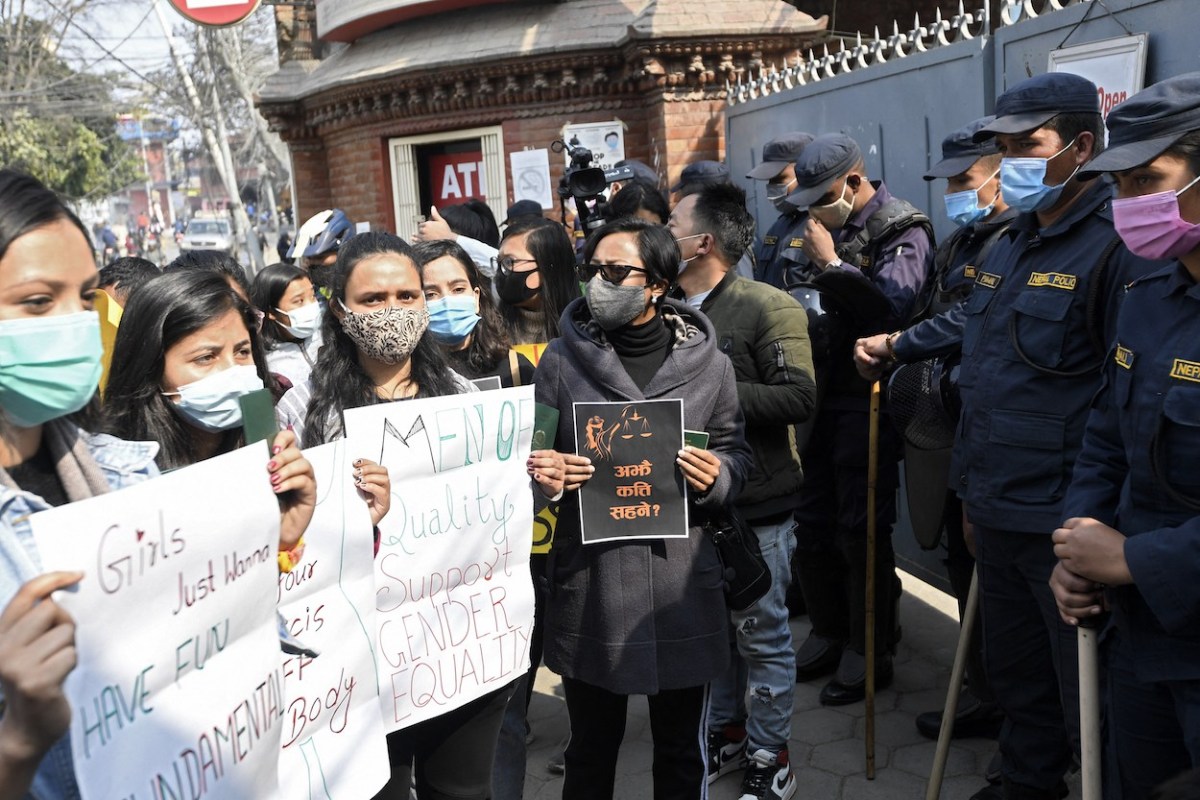[ad_1]
Trafficking of Nepal’s young men and women and children is a blight on the country and an indictment of successive Nepalese governments’ failure to stamp it out.
As a trustee of the The Umbrella Foundation, I know only too well the misery and destruction of young Nepali lives brought about by this evil trade. It thrives on populations whose economic standards are fragile and where the opportunities for worthwhile employment are disproportionately few.
Over the last 60 years, there has been a vast migration from the farms in the Himalayan foothills into the urban areas. But the job opportunities in the conurbations are few and far between, particularly for those without a good secondary education or a useful skill.
That, in turn, has led to armies of people living on the bread line in the cities or returning to their ancestral farmlands to wrest a living in some of the most challenging of settings.
One avenue of relative escape was the demand for labor in the Middle Eastern construction markets of Dubai, Qatar, the United Arab Emirates and Saudi Arabia. Regrettably, stories abound of these laborers being exploited not just by the recruiting agencies but by every Nepalese government agency through whose hands they had to pass before they reached the country of employment.
This systemic corruption is so rife that laborers simply accept it as part of the necessary expense involved if they are to get free of the crushing lack of opportunities in their homeland.
Worse still is the plight of young people, often just children, who are tricked into leaving their families for promised jobs, only to discover that it is prostitution for the girls and slave labor for the boys.
The traffickers assure the family members that the children are guaranteed employment with reputable employers and lull them into a false sense of security.
As with far too many Nepalese government initiatives, such steps as have been taken to combat this evil trade fall woefully short of what is needed and usually drift into sinecures for the relatives of politicians and higher civil servants.Â
From time to time, the government stirs its flaccid limbs and erupts into an ill-considered course of action. The latest proposal highlights the inherent inadequacies of successive government officials to address the evil of trafficking.
The proposal is that any woman under the age of 40 must obtain the consent of a family member and the approval of representatives of their local ward office as well as take out a massive insurance policy before they will be allowed to leave the country.
Nepal’s highly articulate and independent women are, justifiably, up in arms over this discriminatory exercise of patriarchal power.
Despite the huge advances that have been made in Nepal, male dominance is deeply ingrained in the national psyche.
As anyone familiar with Nepal knows only too well, its women are the backbone of the country. Whether in the domestic sphere, running the household as well as the family business or in business and the professions, women have been the dynamic standard bearers over the 60 years that I have been involved with the country. Â
I shall not be forgiven, but that will not prevent me from observing that Nepal’s politics have been monopolized by often elderly, rotund male misogynists who have been the primary cause of the country’s backwardness.
That these men have the temerity even to contemplate, let alone implement, this absurd discriminatory policy is proof positive of their unfitness for any form of public office.
I can think of a dozen women who could wipe the floor with their male equivalents across a broad swath of professions, yet these male dotards have arrogated to themselves the right to dictate under what circumstances women can leave the country.
How, pray, can Nepal ever progress so long as these antediluvian attitudes of mind hold sway?
Always conscious of the readiness with which any official will seize on his power to exact a bribe for performing the duty for which he receives a salary, my immediate reaction on hearing the proposal was that the Nepal Immigration Department had created yet another novel means of lining the pockets of the local ward-office representatives.
This is not the occasion to outline a plan for the economic progression of Nepal, but the principal means of combating trafficking is to create worthwhile job opportunities for the country’s young people.
If the politicians spent half as much time devising and encouraging job creation, training and education as they do stuffing their pockets with “incentives†for doing their job, the youth of Nepal would not be so desperate to emigrate and so vulnerable to the siren calls of the traffickers.
This latest proposal so self-evidently contravenes Article 15 of the Convention on Eliminating All Forms of Discrimination Against Women, to which Nepal is a signatory, that the Supreme Court should take no time in ruling it unconstitutional.
I fear that it will take more than a Supreme Court ruling to root out the innate assumption of male superiority that courses through the veins of much of Nepal’s male population, most especially those in government.
It is long overdue for the women of Nepal to assume the reins of government and lead the country into a future in which there is genuine respect and parity between both the male and female of the species.  Â
Until then, the youth of these families are prime targets for the traffickers.Â
Neville Sarony QC is a noted Hong Kong lawyer with more than 50 years at the Bar.
[ad_2]
Source link













